Rethinking Polymers: Sustainable and Circular by Design
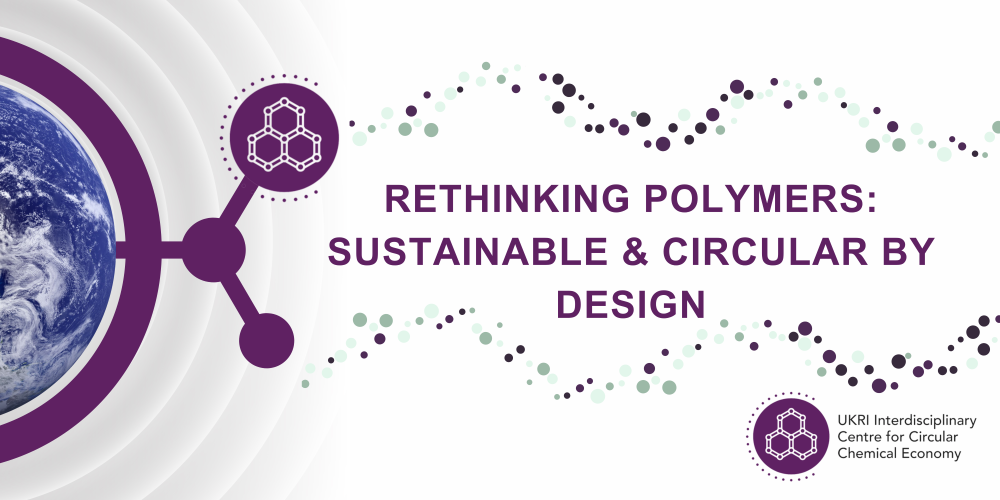
On 18th November, 2024 stakeholders from Industry, Academia, Policy and Non-profit organisations gathered at the Royal Society of Chemistry, Burlington House to discuss the end of life fate of polymers. The event was jointly hosted by the UKRI Interdisciplinary Centre for the Circular Chemical Economy, Innovate-UK and Royal Society of Chemistry.
Separated into three sessions, the event was jam-packed with presentations and conversations around the future of sustainable polymers. These included critical messages to government, the tools required for preparedness and the future funding and research investment needs in the sector. We were thrilled to be joined by a fantastic live artist from Burograph who captured the below illustrations during the event.
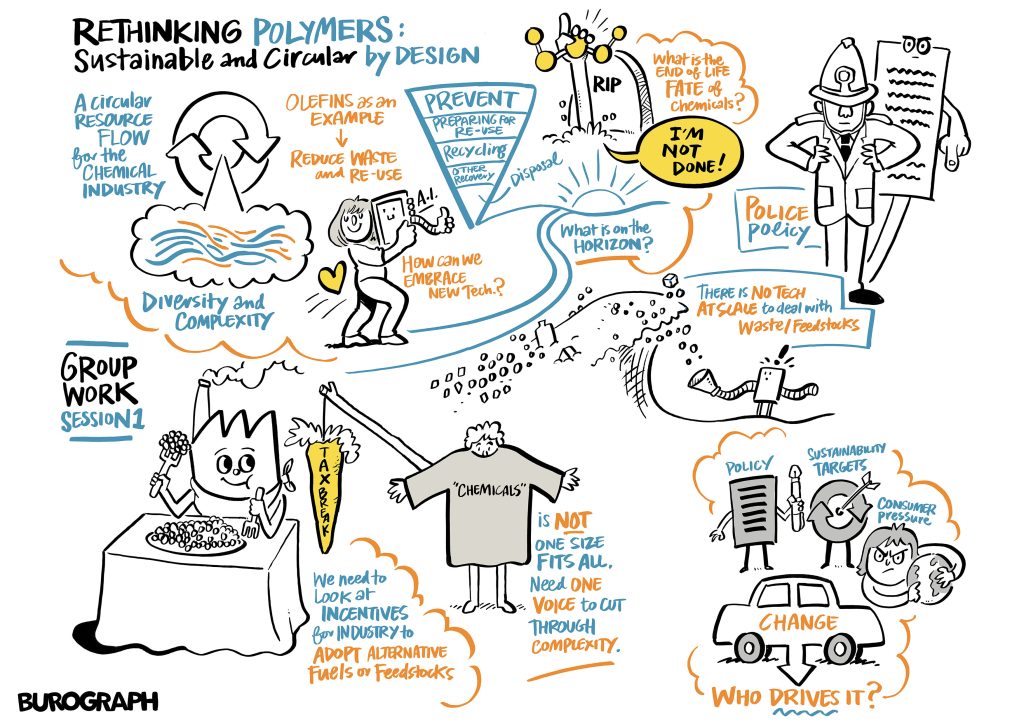
The first session focused on the policy and regulations landscape of polymers, starting with a presentation from Dr Dan Korbel, who serves as the Policy Lead at the Royal Society of Chemistry.
Following the presentation, a panel discussion ensued, chaired by Duncan Lugton, Head of Policy and Impact at IChemE. The panel consisted of industry professionals like Dr Anna Zhenova (Green Rose Chemistry) and Dr Nima Roohpour (Reckitt), academics Dr Feja Lesniewska (University of Surrey) and Prof Jonathan Seville (University of Birmingham) and NGO member Dr Thomas Baker (WRAP), who all presented on their perspectives and challenges regarding the changing policy and regulations landscapes as well as field questions on good practices, exciting future developments, and thoughts on sector awareness of policy and regulations. The panel was followed by lively roundtable discussions that offered further in-depth responses and a comprehensive exploration of the panel’s questions.
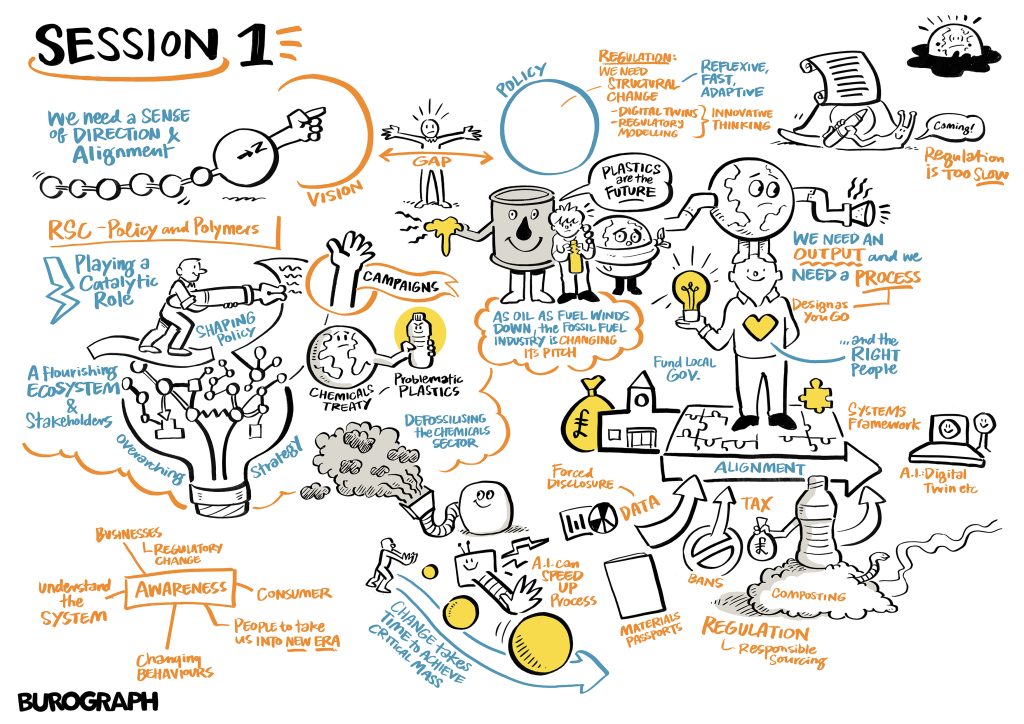
The second session of the day, Making Product Lifecyle Frameworks (PLFs) industry ready, was chaired by our Royal Society of Chemistry co-hosts Prof Anju Massey-Brooker and Dr Kate Carlisle. The session started with two presentations, one on Digital Twinning by Prof Jin Xuan (University of Surrey) and the other on the importance of Mass Balance for a sustainable future by Dr Tony Heslop (BASF).
The panel discussion, which brought together Dr Lorraine Ferris (Henry Royce Institute), Prof Andrew Dove (University of Birmingham) and Dr Harry Barraza (National Measurement Laboratory LGC), focused on a wide array of topics within PLF, including Life Cycle Assessment (LCA) tools for PLFs, methods of biodegradability for PLFs, and studying degradation pathways of sustainable PLFs. The panel members answered questions on key criteria required to develop LCA tools, different approaches of understanding mechanistic breakdown of reaction pathways of biodegradation reactions, and key drivers for companies to use Mass Balance chain of custody. The panel was followed by roundtable discussions that allowed audience members to share their thoughts on PLFs, Mass Balance, Digital Twining, LCAs and Biodegradability.
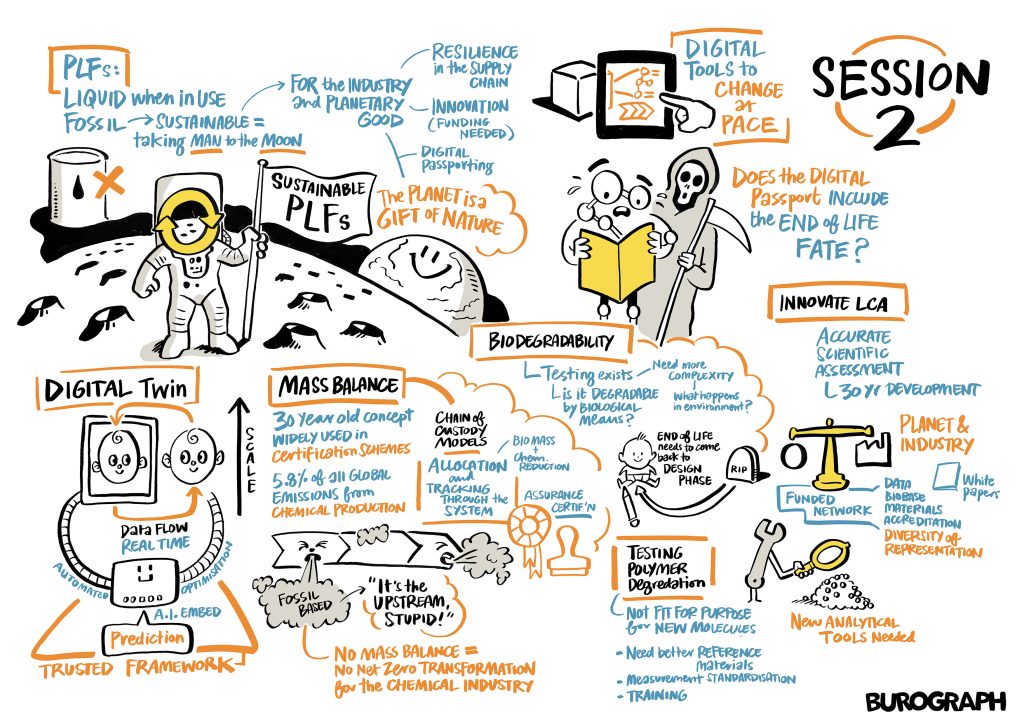
Our last panel of the day, focused on the identification and prioritisation of areas where genuine innovation is required, this panel was chaired by our Innovate UK co-hosts Dr Peter Clark and Prof Sally Beken. Prof Sally Beken opened the session with a presentation offering her insights into the future of the field, drawing on the projects funded by I-UK.
This panel session brought together members of industry and academia, Dr Gary Walker (Lubrizol), Marvine Besong (DeepTech Recycling), Prof Matt Unthank (Northumbria University), Dr Pierre Martin (CPI) and Prof Rachael Rothman (University of Sheffield), who discussed their different perspectives on the challenges of chemical recycling (putting recycled carbon (oil) back into the supply chain), the development and analysis of sustainable processes and clean energy systems, and working as Research and Technology Organisations with industry and academia. The panel finished the event by answering questions on the value of virgin polymers, the future of sustainable chemical recycling, and changes in polymer manufacturing.
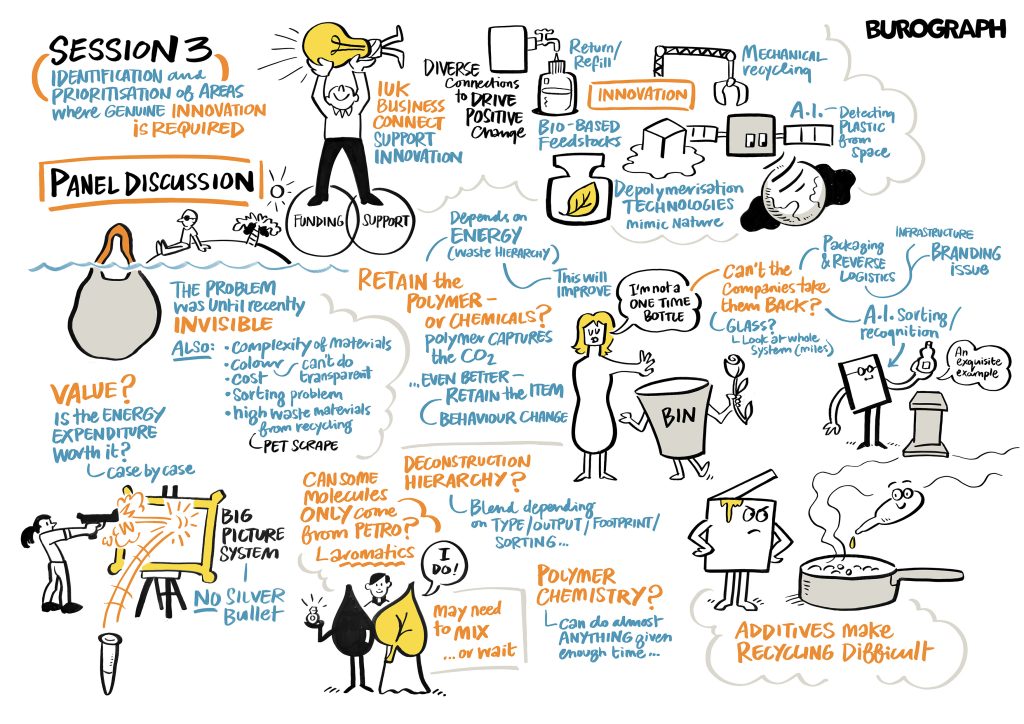
Thank you to everyone who attended the event for sharing your perspectives and contributions, please see below the collaborative report that has been produced as a result of these discussions.